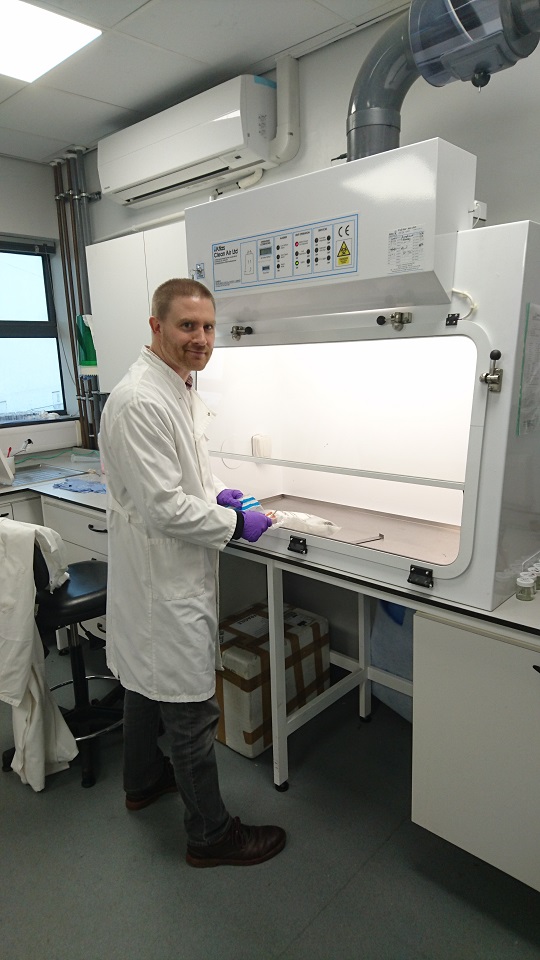Submitted by Ms. Jacky Chaplow on
Andrew Tongue, a PhD student at the University of Birmingham, recently completed a placement at CEH Lancaster working with the Predatory Bird Monitoring Scheme (PBMS).

Andrew’s PhD is entitled Birds as Bio-Indicators of Flame Retardant Emissions from Landfill and he spent time analysing PBMS data, observing bird post-mortems and receiving advice on analytical chemistry techniques.
Flame retardants are widely applied to many products to comply with safety standards and regulations. Some of the brominated flame retardants have been categorised as Persistent Organic Pollutants and have been subject to bans and restrictions on account of their health impacts on wildlife and humans. Andrew’s PhD tests the assumption that UK landfill represents a source of legacy environmental flame retardant contamination, as reflected in the levels of flame retardants detected in the eggs, feathers and blood of gulls foraging at such sites.
Andrew commented: “It was a real privilege to spend time at CEH Lancaster. I was lucky to be surrounded by experts in various disciplines, all of whom were generous in giving me their time and advice.”
We’d like to thank Andrew for all his hard work during his visit with the PBMS team and we wish him the best of luck with his studies.






